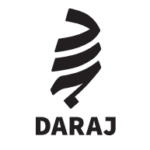Daraj – Editorial

This report is part of the Pegasus Project, a collaborative investigation coordinated by Paris-based Forbidden Stories and Amnesty’s International’s technical laboratory. The project investigates data linked to the Israeli digital intelligence firm NSO, which sells advanced surveillance systems to governments around the world.
Eighty journalists representing 17 media organizations from around the world, including Daraj, worked to produce this series of investigative reports.
NSO sells evil technology to some of the most undemocratic regimes in the world. The “product” was born deep in the trenches of the Israeli military and security establishment against the backdrop of the Israeli war on the Palestinians.
What led us to this statement is the massive data leak shared by Forbidden Stories with 80 journalists from 17 media organizations in 10 countries, including Daraj.
The data reveal the wiretapping of some 50,000 phones belonging to politicians, dissidents, journalists, businessmen, human rights activists and diplomats by ten countries, including some of the most authoritarian regimes in the region, which lack popular backing. The systems used the Pegasus software created by Israeli company NSO.
Hundreds of phone numbers were verified and dozens of phones were subjected to a forensic analysis to confirm whether they were hacked. Note that many thousands of numbers remain unknown when it comes to the identity of their owners and the reason for their targeting. This was not an easy process, especially since the target group was extremely wide.
The information revealed by the Pegasus Project is astounding, opening up a world of eavesdropping under Israeli sponsorship, bearing in mind that the matter is not related to the direct security needs of the Hebrew state, but rather to the moral irresponsibility of those responsible for selling this type of technology, and their utter disregard for what resulted from them selling this technology.
Born out of tragedy, the software hinders the endeavor of change and progress in the countries and societies it is employed.
But it is the only democracy in the Middle East!
Or, at least, that is how Israel likes to define itself. And that is what a large part of the Western audience likes to believe.
You would think that after the Pegasus disclosure, the world will have to have a different conversation with the Israeli entity, as it is not just us in the Middle East, who are targeted by the technology the Israeli Ministry of Defense allowed to be sold.




The data show that Israel also allowed wiretapping of targets in major Western countries, monitoring its leaders, diplomats and businessmen. In the Middle East, the scope of eavesdropping was much wider.
“The only democracy in the Middle East” sells a diabolical technology that eats your phone. A message arrives on your phone, and it does not require you to open it for it to become an observer. Just accessing your device is enough. And once it is on your phone it is no longer your phone.
The leaked NSO files show that the company has sold this technology to such countries as Mexico, Morocco, Saudi Arabia, Azerbaijan, the UAE and Bahrain, as well as Israeli allies in Europe such as Hungary.
Shalev Hulio, one of NSO’s founding partners, responded to a letter sent by a group of journalists involved in this investigation. Having received the letter about a week ago, he tried to deny the Israeli Ministry of Defense’s supervision of his company’s work.
“You incorrectly assert that NSO has programmed its systems to be sold to governments, and has access to its clients’ target data,” he said in response to the letter. “In addition, you falsely claim that the Israeli government monitors the use of our clients’ systems.


This is the kind of conspiracies that critics use against us. Readers will naturally expect you to provide evidence. Instead, it appears you are simply promoting a narrative in which you denounce the NSO Group, something that has been strategized by special interest groups.”
A major question emerging from our reporting is what Israel represents in this whole phenomenon of eavesdropping, as most of the regimes that bought Pegasus, did so to fortify the positions of those in power.
Azerbaijani President Ilham Aliyev, for example, wiretapped the phones of his political opponents, including Bayram Mammadov, who committed suicide in Istanbul during the period he was monitored. In 2018, the UAE eavesdropped on human rights defender Ahmed Mansour just before his arrest and imprisonment. And the Moroccan regime used Pegasus to blackmail journalists and activists with their private lives.
All these sins and dozens of others intersect with the Israeli technology which was legislated by a law from the Knesset, while sales were supervised by the Israeli Ministry of Defense and the doors for customers were opened by former generals in the Israeli army.
Does Israel Have a Monopoly on Wiretapping Iran?
The strange thing about this exceptional media disclosure is that we did not find a trace of a monitored Iranian phone, despite the fact that the technology was sold to Iran’s fiercest opponents in the region, including the UAE, Saudi Arabia and Azerbaijan.
The only explanation that seems logical is that Israel wants to monopolize wiretapping the Iranians, and does not want to share the information obtained with other countries. However, this remains a matter of speculation, as there is no decisive evidence.
This brings us to what an Armenian military source previously indicated when he revealed that an Israeli reconnaissance plane was working with the Azerbaijani army. It was shot down by the Armenian army during the 2020 Nagorno-Karabakh war.
The fact that we did not find any Iranian phone numbers being monitored does not mean that Iran’s allies in the region were not targeted. On the contrary. Most of Iran’s allies in Lebanon, Iraq, Yemen and Qatar were included in the Gulf wiretapping operations, affecting political leaders, security officials and journalists.
If opponents of the UAE and Saudi Arabia were an obvious target, it may come as a surprise that their allies too were vulnerable to an intense policy of eavesdropping. This was the case for Lebanon and Iraq, but also for Egypt and Yemen.
Since the main function of this journalistic project is to expose the violations committed by repressive regimes against their opponents in the region, this will remain an incurable disease as long as exposure is limited to the perpetrators who bought this Israeli technology.
The current disclosure does not help solving crimes committed by Iran’s allies in Iraq, from Hisham al-Hashemi to Ihab al-Wazni, not to mention Luqman Salim in Lebanon, and before him dozens of targeted attacks on activists, journalists and politicians in Lebanon.
Today, we are facing a major player in the dirty wiretapping war, which is Israel. It is a matter not new to Tel Aviv. Israel helped Moroccan intelligence assassinate Mahdi Ben Barka in Paris as early as 1966.
“It does not concern us if Ben Barka remains alive,” said Mossad chief Meir Amit at the time. “What concerns us is helping Hassan II to protect the throne after the Moroccan intelligence helped us to eavesdrop on most Arab leaders during the Arab summit in 1965.”
But Israeli wiretapping does not only concern politics. Even the Mexican drug cartels, supplying their toxins to Western societies, have benefited from NSO technology.
Perhaps what is most perverse about the Israeli spyware is the opportunities it offered for sexual blackmail, as practiced by such regimes as Morocco and Azerbaijan, which especially targeted female journalists and activists. And of course this happened with the full knowledge of the Israeli company that conducted the technical supervision for hacking and eavesdropping operations.
As for countries of which it has not been proven they purchased the Israeli eavesdropping technology, such as Turkey, the possibility of the authorities benefiting indirectly from this technology remains valid, or even likely. For example, Azerbaijan wiretapped Azerbaijani activists and opponents living in Turkey, which probably happened with the knowledge of the Turkish authorities, especially since military, security and trade relations between Baku and Tel Aviv pass via Ankara.
Following the letter he received, Shalev’s responses poured in. Some came directly from him, others through a US law firm.
“The truth is that NSO Group technologies have helped prevent terrorist attacks, armed violence, car explosions, and suicide bombings,” Shalev said. “Techniques are also used every day to uncover child abuse, sex and drug trafficking rings, and to locate missing and abducted children, locate survivors trapped under collapsed buildings, and protect airspace from sabotage by drones. Simply put, NSO Group has a mission to save lives, and the company will carry out that mission faithfully and unchecked, despite the constant attempts to discredit it on false grounds.”
Today we begin to publish our stories in parallel with 17 other media outlets, in all the main languages of the world in order to expose the violations that arise from selling Pegasus spyware to regimes that use this capability to suppress, kill and expel, among many others, people active in the arena of public opinion. In our upcoming stories we will prioritize them.
Media organizations involved in the Pegasus Leaks:
Forbidden Stories – Le Monde- Suddeutsche Zeitung -Die Zeit – Washington Post – The Guardian -Daraj – Direkt36 – Le Soir – Knack-Radio France – The Wire – Proceso – Aristeui Noticias – OCCRP- Haaretz – PBS Frontline






